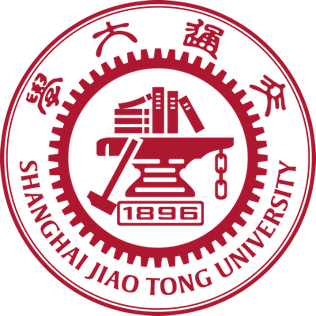About Us
The ByteDance Software Engineering Lab envisions achieving safe and trusted intelligent automated software engineering. We are dedicated to accelerating the integration and complementarity of software engineering and artificial intelligence, driving technological advancements in every aspect of software development. To achieve this goal, we bring together the best researchers and development engineers from diverse fields and backgrounds to address the challenges faced by ByteDance and the entire software engineering community.
We setup collaboration projects with top-tier universities around the world, to explore the future of software engineering and artificial intelligence.
News
📌 We are hiring internships under a talent program. Please consider join us!
📌 We have open-sourced Trae Agent, the SOTA agent on SWE-bench Verified. The tech report is available at arXiv.
Oct 2025: Three papers are accepted by ICSE 2026: More with Less: An Empirical Study of Turn-Control Strategies for Efficient Coding Agents, Enhancing Issue Localization Agent with Tool-Interactive Training, and LLM-based Agents for Automated Bug Fixing: How Far Are We?
Sep 2025: Our paper Repo2Run: Automated Building Executable Environment for Code Repository at Scale is accepted by NeurIPS 2025 as a Spotlight Paper [pdf]. Congratulations to Ruida! The framework is available at [github].
May 2025: Our paper RepoMasterEval: Evaluating Code Completion via Real-World Repositories is accepted by the Industry Showcase Track of ASE 2025 [pdf]. Congratulations to Qinyun!
Aug 2025: Our paper CodeVisionary: An Agent-based Framework for Evaluating Large Language Models in Code Generation is accepted by ASE 2025 [pdf]. Congratulations to Xinchen!
Jun 2025: Our paper SGo-Oracle: Automated Test Oracle for Go Concurrency Bugs is accepted by the Technical Track of ESEM 2025 [pdf]
May 2025: Our paper SoRFT: Issue Resolving with Subtask-oriented Reinforced Fine-Tuning is accepted by the Main Track of ACL 2025 [pdf]. Congratulations to Zexiong!
Contact
Dr. Chao Peng
Address: Building 1, Dazhongsi Square, ByteDance, Beijing, China
Email:
Active Events
ICSE 2025
📅 27 April - Sat 3 May 2025
📍 Rogers Centre, Ottawa
We are sponsoring ICSE 2025 and organising an LLM4Code Reception. Signup here: Link
FSE 2025
📅 23 June 2025 - 27 June 2025
📍 Trondheim, Norway
We are sponsoring FSE 2025 and organising an AI IDE workshop.
Past Events
ASE 2024
📅 28 Oct 2024 - 1 Nov 2024
📍 Sheraton Grand, Sacramento, California
ByteDance SE Lab is sponsoring ASE 2024 and present our NIER paper on code completion. We look forward to seeing you in Sacramento.
ECOOP and ISSTA 2024
📅 16 Sep 2024 - 20 Sep 2024
📍 Vienna University of Technology (TU Wien) - Campus Gusshaus
ByteDance SE Lab is sponsoring ECOOP and ISSTA 2024, and organising a MarsCode Reception. We look forward to seeing you in Vienna.
Publications
Preprint and Tech Reports
-
Trae Research. (2025). "Trae Agent: An LLM-based Agent for Software Engineering with Test-time Scaling." arXiv:2507.23370. pdf GitHub
Technical report of Trae Agent.
-
Chen, Jialiang, Kaifa Zhao, Jie Liu, Chao Peng, Jierui Liu, Hang Zhu, Pengfei Gao, Ping Yang, Shuiguang Deng. (2024). "CoReQA: Uncovering Potentials of Language Models in Code Repository Question Answering." arXiv preprint arXiv:2501.03447. pdf
We introduce CoReQA, a new benchmark for repository-level question answering, to evaluate large language models' performance in understanding code repositories, highlighting the limitations of current models in effectively addressing repository-level questions.
-
Guan, Zhanming, Junlin Liu, Jierui Liu, Chao Peng, Dexin Liu, Ningyuan Sun, Bo Jiang, Wenchao Li, Jie Liu, and Hang Zhu. (2024). "ContextModule: Improving Code Completion via Repository-level Contextual Information." arXiv preprint arXiv:2412.08063. pdf
This paper introduces ContextModule, a framework that enhances LLM-based code completion by retrieving and integrating user behavior-based code, similar code snippets, and critical symbol definitions from the repository, thereby improving accuracy and user acceptance rates.
-
Hu, Ruida, Chao Peng, Jingyi Ren, Bo Jiang, Xiangxin Meng, Qinyun Wu, Pengfei Gao, Xinchen Wang, Cuiyun Gao. (2024). "A Real-World Benchmark for Evaluating Fine-Grained Issue Solving Capabilities of Large Language Models". arXiv preprint arXiv:2411.18019. pdf
Map issues and pull requests from GitHub Repositories and produce a benchmark to assess question answering, fault localisation and code editing capabilities.
-
Liu, Yizhou, Pengfei Gao, Xinchen Wang, Jie Liu, Yexuan Shi, Zhao Zhang, Chao Peng. (2024). "MarsCode Agent: AI-native Automated Bug Fixing". arXiv preprint arXiv:2409.00899. pdf 中文报告
By building a multi-agent collaboration framework and providing interactive interfaces and tools for code retrieval, debugging, and editing, MarsCode Agent has fixed 39.33% real software bugs from the SWE-bench Lite benchmark.
Peer-reviewed
-
Gao, Pengfei, Chao Peng. (2025). "More with Less: An Empirical Study of Turn-Control Strategies for Efficient Coding Agents" In ICSE 2026.
This paper presents the first systematic study of turn-control strategies for LLM-powered coding agents, showing that a dynamic-turn strategy intelligently allocating turns achieves comparable or better performance while reducing costs by up to 68%, offering practical guidelines for cost-effective agent deployment.
-
Ma, Zexiong, Chao Peng, Qunhong Zeng, Pengfei Gao, Yanzhen Zou, Bing Xie (2025). "Enhancing Issue Localization Agent with Tool-Interactive Training" In ICSE 2026.
This paper introduces ToolTrain, a two-stage training framework that enhances LLMs’ ability to use retrieval tools for multi-step reasoning in issue localization, achieving state-of-the-art results and improving end-to-end automated software development performance.
-
Meng, Xiangxin, Zexiong Ma, Pengfei Gao, Chao Peng. (2024). "LLM-based Agents for Automated Bug Fixing: How Far Are We?". In ICSE 2026. pdf
An empirical study comparing LLM-based agents for automated bug fixing and analysing their performance and capabilities.
-
Hu, Ruida, Chao Peng, Xinchen Wang, Junjielong Xu and Cuiyun Gao. (2025). "Repo2Run: Automated Building Executable Environment for Code Repository at Scale" In NeurIPS 2025. pdf code
Repo2Run is the first LLM-based agent that automates environment configuration via atomic synthesis and dual-environment architecture, generating error-free Dockerfiles for Python repositories with 86% success rate (63.9% higher than baselines).
-
Wu, Qinyun, Chao Peng, Pengfei Gao, Ruida Hu, Haoyu Gan, Bo Jiang, Jinhe Tang et al. (2025). "RepoMasterEval: Evaluating Code Completion via Real-World Repositories." In ASE 2025 Industry Track. pdf
A real and industry-level benchmark to assess LLM's code completion capabilities.
-
Wang, Xinchen, Pengfei Gao, Chao Peng, Ruida Hu, Cuiyun Gao. (2025). "CodeVisionary: An Agent-based Framework for Evaluating Large Language Models in Code Generation." In ASE 2025. pdf
This paper introduces CodeVisionary, an LLM-based agent framework for evaluating code generation models that combines multisource knowledge analysis and negotiation-based scoring, achieving state-of-the-art correlation with human judgments and providing detailed, interpretable evaluation reports for developers.
-
Tsimpourlas, Foivos, Chao Peng, Carlos Rosuero, Ping Yang, and Ajitha Rajan. (2024). "Go-Oracle: Automated Test Oracle for Go Concurrency Bugs." In ESEM 2025. pdf
We propose an automatic classification method using a transformer-based neural network to address the test oracle problem for Go programs.
-
Ma, Zexiong, Chao Peng, Pengfei Gao, Xiangxin Meng, Yanzhen Zou, and Bing Xie. (2025). "SoRFT: Issue Resolving with Subtask-oriented Reinforced Fine-Tuning." In ACL 2025. pdf
This paper proposes Subtask-oriented Reinforced Fine-Tuning (SoRFT), a novel two-stage training framework combining rejection-sampled supervised fine-tuning and rule-based reinforcement learning (PPO with ground-truth rewards), which addresses the limitations of commercial model dependency and poor generalization in issue-resolving tasks. SoRFT achieves SOTA performance among open-source models (e.g., 21.4% resolution on SWE-Bench Verified) through structured subtask decomposition and ground-truth enhanced training.
-
Liang, Xiaoyun, Jingyi Ren, Jiayi Qi, Chao Peng, Bo Jiang. (2025). "DialogAgent: An Auto-engagement Agent for Code Question Answering Data Production." In ICSE 2025 SEIP. pdf
This paper proposes Subtask-oriented Reinforced Fine-Tuning (SoRFT), a novel two-stage training framework combining rejection-sampled supervised fine-tuning and rule-based reinforcement learning (PPO with ground-truth rewards), which addresses the limitations of commercial model dependency and poor generalization in issue-resolving tasks. SoRFT achieves SOTA performance among open-source models (e.g., 21.4% resolution on SWE-Bench Verified) through structured subtask decomposition and ground-truth enhanced training.
-
Hu, Ruida, Chao Peng, Jingyi Ren, Bo Jiang, Xiangxin Meng, Qinyun Wu, Pengfei Gao, Xinchen Wang, Cuiyun Gao (2025). "Understanding Large Language Model Performance in Software Engineering: A Large-scale Question Answering Benchmark." In SIGIR 2025 (Short Paper). pdf
This paper proposes Subtask-oriented Reinforced Fine-Tuning (SoRFT), a novel two-stage training framework combining rejection-sampled supervised fine-tuning and rule-based reinforcement learning (PPO with ground-truth rewards), which addresses the limitations of commercial model dependency and poor generalization in issue-resolving tasks. SoRFT achieves SOTA performance among open-source models (e.g., 21.4% resolution on SWE-Bench Verified) through structured subtask decomposition and ground-truth enhanced training.
-
Wang, Xinchen, Pengfei Gao, Xiangxin Meng, Chao Peng, Ruida Hu, Yun Lin, Cuiyun Gao. (2024). "AEGIS: An Agent-based Framework for General Bug Reproduction from Issue Descriptions". In FSE 2025 Industry Track. pdf
Proposed a bug reproduction framework via LLM-based agents, which can transform repository issues to test scripts to reproduce bugs.
-
Li, Bowen, Wenhan Wu, Ziwei Tang, Lin Shi, John Yang, Jinyang Li, Shunyu Yao, Chen Qian, Binyuan Hui, Qicheng Zhang, Zhiyin Yu, He Du, ping yang, Dahua Lin, Chao Peng, Kai Chen (2024). "Prompting Large Language Models to Tackle the Full Software Development Lifecycle: A Case Study". In proceedings of COLING 2025. pdf tool
Studied how LLMs perform on end-to-end software development and provided detailed analysis of product requirement document generation, environment setup, coding, unit test generation and acceptance test generation.
-
Liang, Xiaoyun, Jingyi Ren, Jiayi Qi, Chao Peng, and Bo Jiang. "DialogAgent: An Auto-engagement Agent for Code Question Answering Data Production." In ICSE 2025 SEIP Track. pdf
This paper introduces DialogAgent, an automated tool that generates high-fidelity synthetic training data to enhance the performance of large language models in code generation, comprehension, and repair tasks.
-
Chao Peng, Qinyun Wu, Jiangchao Liu, Jierui Liu, Bo Jiang, Mengqian Xu, Yinghao Wang, Xia Liu, Ping Yang (2024). "RepoSim: Evaluating Prompt Strategies for Code Completion via User Behavior Simulation." In proceedings of ASE 2024 (NIER Track). ACM, 2024.
Proposed a prompt framework based on user behaviour simulation and evaluation metrics based on user acceptance prediction, to study how LLMs perform on code completion tasks.
-
Liu, Chenyan#, Yufan Cai#, Yun Lin*, Yuhuan Huang, Yunrui Pei, Bo Jiang, Ping Yang, Jin Song Dong, and Hong Mei (2024). "CoEdPilot: Recommending Code Edits with Learned Prior Edit Relevance, Project-wise Awareness, and Interactive Nature". In Proceedings of ISSTA 2024. ACM, 2024.
Proposed a whole-project code editing framework based on LLMs, for locating, generating and interacting with code edits. Code editing is predicted via related edits, interaction properties and chained effect estimation.
-
Zhu Tao, Yongqiang Gao, Jiayi Qi, Chao Peng, Qinyun Wu, Xiang Chen, Ping Yang (2024). "Neat: Mobile App Layout Similarity Comparison based on Graph Convolutional Networks." In proceedings of FSE 2024 (Industry Track). ACM, 2024.
Comparing the similarity between mobile app pages based on graph convolutional networks and detecting visual bugs using app designs and rendered pages on different platforms.
-
Lin, Hao, Jiaxing Qiu, Hongyi Wang, Zhenhua Li, Liangyi Gong, Di Gao, Yunhao Liu, Feng Qian, Zhao Zhang, Ping Yang, Tianyin Xu. "Virtual Device Farms for Mobile App Testing at Scale: A Pursuit for Fidelity, Efficiency, and Accessibility". In Proceedings of MobiCom 2023. ACM, 2023.
We analyse, improve, and effectively utilise virtual devices for large-scale mobile app testing, demonstrating that high-fidelity testing can be achieved through sensible design and implementation of virtual device farms, and presents solutions to significantly improve testing fidelity, while sharing experiences on enhancing testing efficiency and accessibility with virtual device farms.
-
Peng, Chao, Zhengwei Lv, Jiarong Fu, Jiayuan Liang, Zhao Zhang, Ajitha Rajan, Ping Yang (2024). "Hawkeye: Change-targeted Testing for Android Apps based on Deep Reinforcement Learning". In Proceedings of ICSE 2024 (Software Engineering in Practice). ACM, 2024.
Trained a deep reinforcement learning network based on the exploration history of mobile app testing to quickly trigger code-related changes, improving the test effectiveness and fault finding capabilities.
-
Liang, Xiaoyun, Jiayi Qi, Yongqiang Gao, Chao Peng, Ping Yang (2023). "AG3: Automated Game GUI Text Glitch Detection based on Computer Vision". In Proceedings of ESEC/FSE 2023 (Industry Track). ACM, 2023.
Detecting text glitches for mobile games based on computer vision, uncovering and locating text overlap, text overstep and other text display issues introduced by the internationalisation of mobile apps.
-
Jiang, Zongze, Ming Wen, Yixin Yang, Chao Peng, Ping Yang, Hai Jin (2023). "Effective Concurrency Testing for Go via Directional Primitive-constrained Interleaving Exploration". In Proceedings of ASE 2023. IEEE, 2023.
A novel testing approach for detecting Go concurrency bugs through primitive-constrained interleaving exploration, utilizing execution histories to identify new interleavings instead of relying on exhaustive exploration or random scheduling.
-
Wang, Siwei, Xue Mao, Ziguang Gao, Yujun Gao, Qucheng Shen, and Chao Peng (2023). "NxtUnit: Automated Unit Test Generation for Go". In Proceedings of EASE 2023 (Industry Track). 2023. pdf
An automated unit test generation tool for Go based on random testing and suitable for microservices.
-
Sun, Jingling, Ting Su, Kai Liu, Chao Peng, Zhao Zhang, Geguang Pu, Tao Xie, and Zhendong Su (2022). "Characterizing and Finding SystemSetting-Related Defects in Android Apps". IEEE Transactions on Software Engineering. 2023. pdf
Conducted the first large-scale empirical study to understand and characterize system setting-related defects in mobile apps, triggered by changes in system settings and proposed two synergistic bug-finding techniques: setting-wise metamorphic fuzzing for GUI-level dynamic testing and a static analysis tool for code-level detection.
-
Lv, Zhengwei, Chao Peng, Zhao Zhang, Ting Su, Kai Liu, and Ping Yang (2022). "Fastbot2: Reusable Automated Model-based GUI Testing for Android Enhanced by Reinforcement Learning". In Proceedings of ASE 2022 (Industry Track). ACM, 2022. pdf tool: Android tool: iOS
Modeling history exploration data via reinforcement learning and probabilistic models to improve the effectiveness and fault finding capabilities of mobile app GUI testing.
-
Peng, Chao, Yujun Gao, and Ping Yang (2022). "Automated Server Testing: an Industrial Experience Report". In Proceedings of ICSME 2022 (Industry Track). IEEE, 2022. pdf
Presented the design and deployment of the fully automated server interface reliability testing platform at [our company that provides capabilities including (1) traffic data generation based on combinatorial testing and fuzzing, (2) scenario testing for complicated business logics, and (3) automated test execution with fault localization in a controlled environment that does not affect online services.
-
Peng, Chao, Zhao Zhang, Zhengwei Lv, and Ping Yang (2022). "MUBot: Learning to Test Large-Scale Commercial Android Apps like a Human". In Proceedings of ICSME 2022 (Industry Track). IEEE, 2022. pdf
Generating logical and human-imitating GUI testing event sequences based on a neural network trained on open-source corpus via imitation learning.
-
Wu, Qinyun, Huan Song and Ping Yang. "Real-World Clone-Detection in Go." In Proceedings of MSR 2022 (Industry Track). ACM, 2022. pdf
Trained a neural network to pair similar Go code snippets for clone detection.
-
Peng, Chao, Ajitha Rajan, and Tianqin Cai. "CAT: Change-focused Android GUI Testing." In Proceedings of the 2021 IEEE International Conference on Software Maintenance and Evolution (ICSME). IEEE, 2021. pdf
Modeling code graph and code-widget via static analysis and for code changes, selecting actions in GUI testing that are likely to trigger changes.
-
Cai, Tianqin, Zhao Zhang, and Ping Yang. "Fastbot: A Multi-Agent Model-Based Test Generation System." In Proceedings of the IEEE/ACM 1st International Conference on Automation of Software Test. 2020. pdf
Existing GUI model-based testing tools may fail when applied to apps with industrial complexity and scalability. We present a multi-agent system which performs model construction on the server end and applies a multi-agent collaboration mechanism to speed up the model construction procedure.
Blog
Pinned Posts
Recent Posts
Career Opportunities
🔥🔥🔥 Jin Dou Yun Talent Internship
Application Deadline: Open till mid year
We are seeking highly motivated PhD students in AI, SE, or PL. The successful candidate will work on cutting-edge research projects in our field.
Requirements:
- Ph.D student in a relevant field
- Strong publication record
- Excellent communication skills
LLM4SE Researcher
Application Deadline: Ongoing
We have openings for LLM4SE researchers to work on various projects in our lab.
Requirements:
- Expected to graduate in 2025 or later with a master's or doctorate degree
- Background in relevant research areas
- Self-motivated
Research Intern
Application Deadline: Ongoing
We have openings for research interns to work on various projects in our lab.
Requirements:
- Enrolled in an undergraduate or graduate program
- Background in relevant research areas
- Self-motivated








